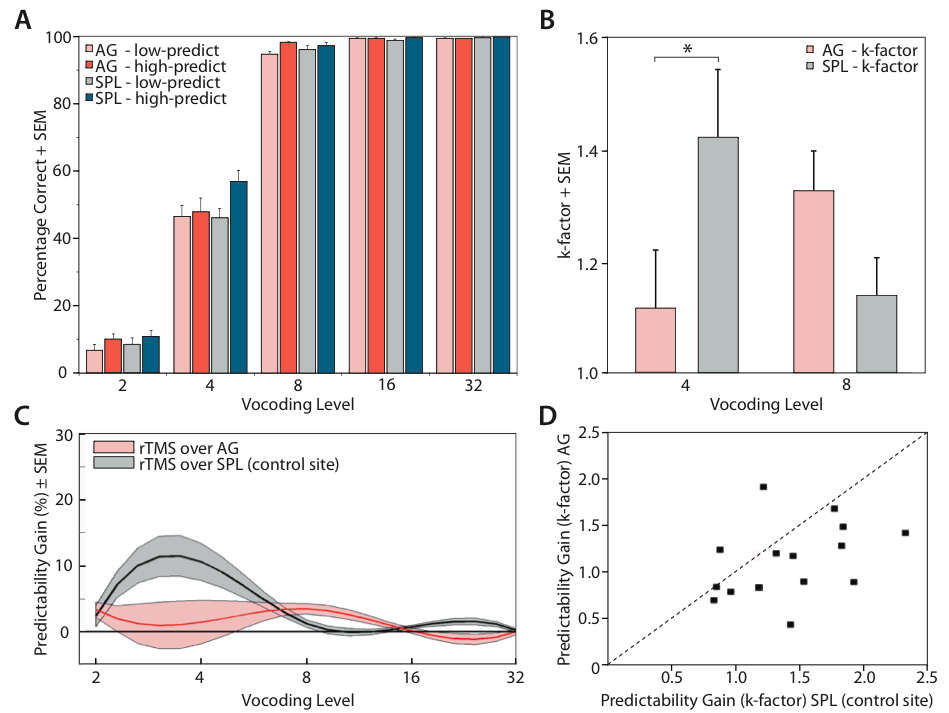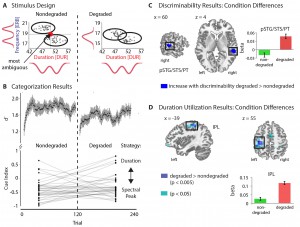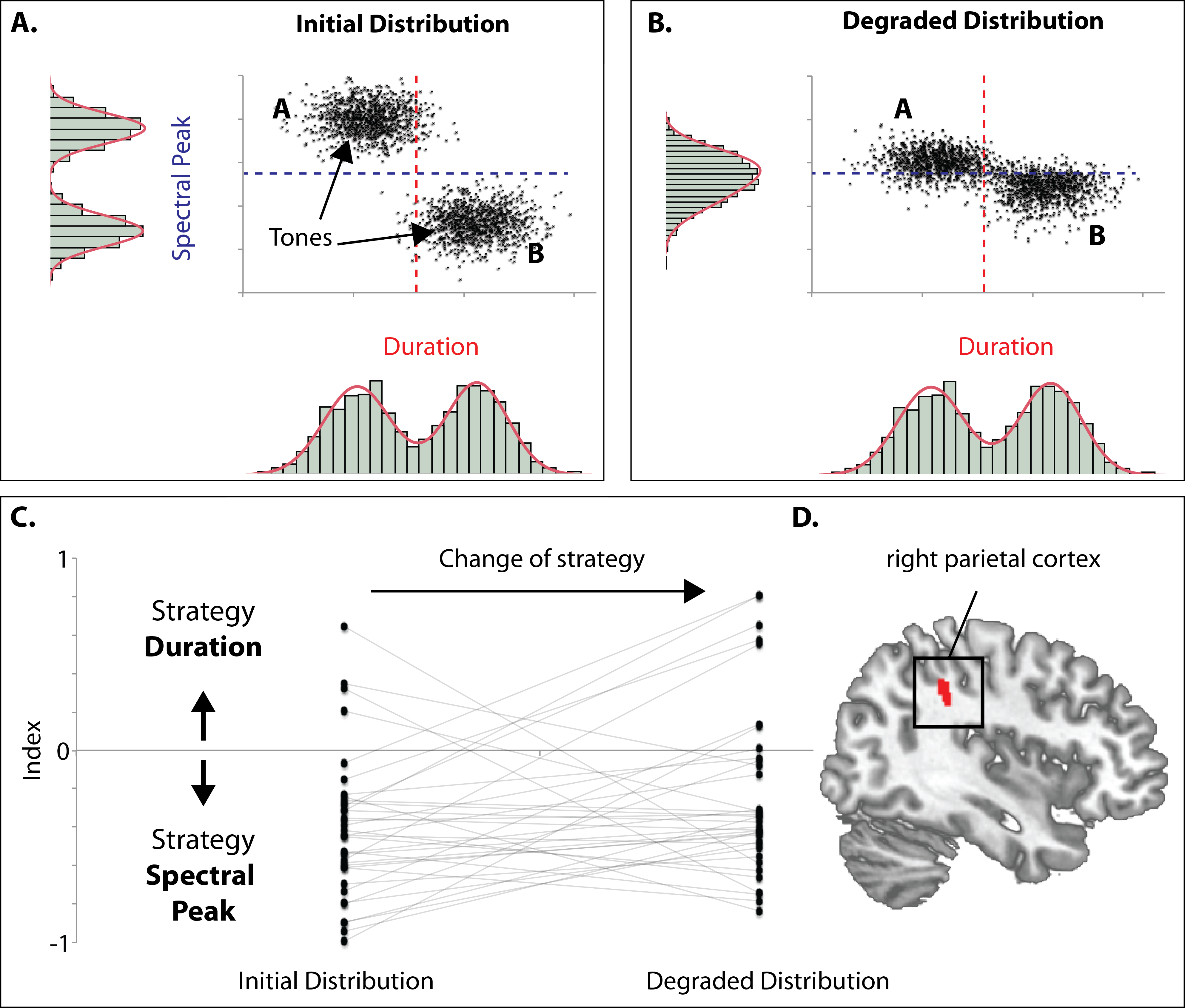In a collaboration with the University Clinic of Leipzig and Prof Dr Gesa Hartwigsen (now University of Kiel), a new paper is to appear in “Cortex”, in the forthcoming special issue on Prediction in Speech and Language, edited by Alessandro Tavano and AC alumnus Mathias Scharinger.
Repetitive transcranial magnetic stimulation over left angular gyrus modulates the predictability gain in degraded speech comprehension
Hartwigsen G, Golombek T, & Obleser J.
See abstract
Increased neural activity in left angular gyrus (AG) accompanies successful comprehension of acoustically degraded but highly predictable sentences, as previous functional imaging studies have shown. However, it remains unclear whether the left AG is causally relevant for the comprehension of degraded speech. Here, we applied transient virtual lesions to either the left AG or superior parietal lobe (SPL, as a control area) with repetitive transcranial magnetic stimulation (rTMS) while healthy volunteers listened to and repeated sentences with high- vs. low-predictable endings and different noise vocoding levels. We expected that rTMS of AG should selectively modulate the predictability gain (i.e., the comprehension benefit from sentences with high-predictable endings) at a medium degradation level. We found that rTMS of AG indeed reduced the predictability gain at a medium degradation level of 4‑band noise vocoding (relative to control rTMS of SPL). In contrast, the behavioral perturbation induced by rTMS reversed with increased signal quality. Hence, at 8‑band noise vocoding, rTMS over AG vs. SPL increased the overall predictability gain. Together, these results show that the degree of the rTMS interference depended jointly on signal quality and predictability. Our results provide the first causal evidence that the left AG is a critical node for facilitating speech comprehension in challenging listening conditions.

Check it out soon!
References
- Hartwigsen G1, Golombek T2, Obleser J3. Repetitive transcranial magnetic stimulation over left angular gyrus modulates the predictability gain in degraded speech comprehension. Cortex. 2014 Sep 18. PMID: 25444577. [Open with Read]
Increased neural activity in left angular gyrus (AG) accompanies successful comprehension of acoustically degraded but highly predictable sentences, as previous functional imaging studies have shown. […]



